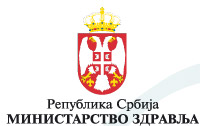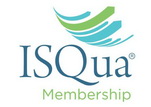About SEEHN
South-eastern Europe Health Network (SEEHN) was founded in 2001 as one of the initiatives in social cohesion initiative of the Stability Pact for  South-Eastern Europe. The Stability Pact was the first comprehensive strategy of the international community launched with the aim to help the countries of our region in the process of reconciliation, restoring confidence, peace, stability and security, development of democracy, respect for human rights and the provision of economic progress.
South-Eastern Europe. The Stability Pact was the first comprehensive strategy of the international community launched with the aim to help the countries of our region in the process of reconciliation, restoring confidence, peace, stability and security, development of democracy, respect for human rights and the provision of economic progress.
SEEHN was set up by the governments of Albania, Bosnia and Herzegovina, Bulgaria, Croatia, Montenegro, Republic of Moldova, Romania, Serbia and the Former Yugoslav Republic of Macedonia. In 2011, Israel became a 10th member of the Network.
For the past 11 years, continuous political, financial, technical and administrative support to the SEEHN was provided by WHO Regional Office for Europe, Council of Europe, Council of Europe Development Bank, Stability Pact for South Eastern Europe and its successor – Regional Cooperation Council. The significant political and financial support was made by ten partner countries: Belgium, France, Greece, Hungary, Italy, Norway, Slovenia, Sweden, Switzerland and the United Kingdom.
The initiative to improve the health of all residents in the region of Southeast Europe resulted with the First Health Ministers’ Forum in Dubrovnik 2001. The focus of health ministers were problems and needs of vulnerable groups of the population.
By signing the Dubrovnik Pledge, Ministers of health committed to the priorities in its work to set up the availability of adequate and quality health services, strengthen mental health services in the community, the establishment of regional networks and information systems for the collection and exchange of information related to health.
The Ministers invited international donors to provide financial support and WHO Regional Office for Europe and the Council of Europe to provide technical and strategic support. The first Health Ministers’ Forum and Dubrovnik Pledge defined work of SEEHN as two-folded: the political level, in which focus is the Health Ministers’ Forum and the technical implementation of specific projects.
The Second Health Ministers’ Forum was held in Skopje in 2005. Beside health Ministers the Forum was attended by the Ministers of Finance. The Forum discussed results of research conducted by the Council of Europe and WHO Regional Office for Europe about health and economic prosperity of South East Europe in the 21st century.
The Skopje Pledge was signed at the Forum which confirmed the commitment of health Ministers from the region to develop set of common and consistent principles to health systems in the region. By signing Skopje Pledge Ministers committed to improve health care and health services, to enhance the readiness of the region to respond to the possibility of outbreaks, to implement international health regulations, to resolve issues of mental health and to demonstrate the economic benefits of health-investment.
The Third Health Ministers’ Forum held 2011 in Banja Luka marked the Tenth Anniversary of SEEHN, and was the opportunity for member states to demonstrate the ability to connect their experience of regional cooperation with dynamic and demanding European and global context. The forum was organized with aim to demonstrate the need of an integrated approach to solve the health issues that require the involvement of all segments of society, and that includes all of the government’s health strategy. (Access to the entire Government, Health in all policies).
The Ministers in Banja Luka demonstrated full awareness of the effects of large changes in Europe and the world of health in the region, particularly the impact of globalization and increased flow of people and goods qualifying the global economy, and the impact of European integration, in particular the accession of individual Member of SEEHN to the European Union.
With adoption of the Banja Luka Pledge the health Ministers of SEEHN harmonized health policy of SEEHN with the most important European legislation, strategies and action plans, particularly with the strategic document of WHO’s Regional Office for Europe Health 2020, the European Action Plan for the prevention of chronic disease, and the Conclusion of the Council of the European Union on health in all policies.
Functionality of SEEHN and in particular the structure changed and evolved over time and the final form was given 2008 by signing of the Memorandum of Understanding on the Future of the SEEHN.
The Memorandum of Understanding, as a legally binding document signed by the governments of the nine member countries, established institutional mechanisms for sustaining the regional cooperation on health development and set up the structure, responsibilities and forms of financing of SEEHN.


